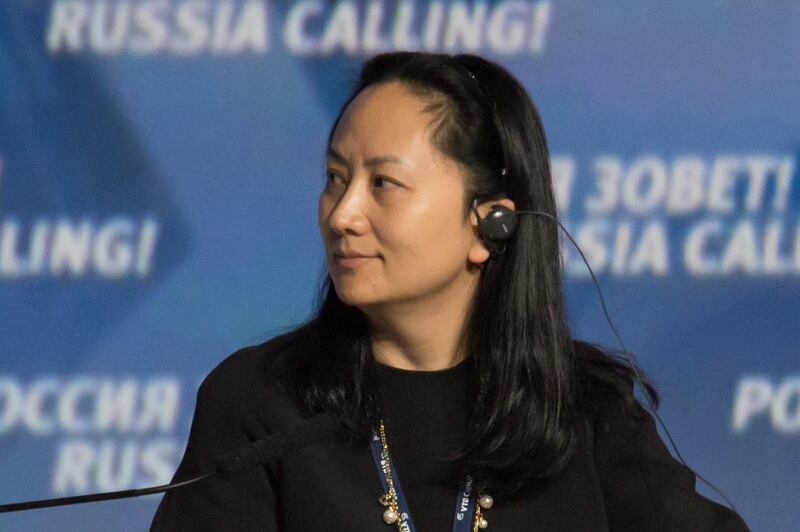The arrest of Meng Wanzhou, finance chief of Chinese technology giant Huawei and the daughter of the company's founder, reportedly for violating sanctions against Iran, shows that the administration of US President Donald Trump means business.
The US imposed a new round of sanctions on Tehran last month affecting oil exports, banking and shipping, in order to rein in the regime’s attempts to destabilise the region and vowed to forcefully pursue any company that continued to deal with the country, regardless of where they are based.
Although European Union countries proposed creating special purpose vehicles to circumvent the sanctions, many firms and countries have scaled back business with Tehran for fear of US reprisals.
And rightly so – economic sanctions are a helpful middle ground between words and weapons but they cannot work in isolation and require the adherence of companies and nations across the globe.
The now-defunct 2015 Iran nuclear deal freed up billions of dollars in revenue for Tehran, which the regime spent not on its people but on military adventures in the region, from Yemen and Lebanon to Iraq and Syria, as well as on its arsenal of ballistic missiles.
Meng deserves due process and must not become a political football. But by seeking the arrest of the heiress to a company that is reportedly involved in shipping US-origin products to Iran, in violation of US exports and sanctions laws, the administration has shown its teeth. But it seems that there might be more to this story than meets the eye.
While it is vital to follow through on pushing the rest of the world to sanction Tehran, concerns over China’s response warrant attention, not least for global trade and stability.
The Chinese embassy in Canada reacted with fury, claiming Ottawa had arrested a Chinese citizen “not violating any American or Canadian law” and urged authorities to “immediately correct the wrongdoing and restore the personal freedom of Ms Meng Wanzhou”.
The timing is somewhat curious, just days after Mr Trump and his Chinese counterpart, Xi Jinping, agreed after the G20 Summit in Argentina to resolve their ongoing trade war, which saw both impose billion-dollar tariffs on each other’s goods.
The arrest yesterday will likely widen the divide between the world’s two largest economies and spark urgent fears for global trade.
Unsurprisingly, the incident sent ripples through international markets, with Asian shares tumbling.
There are multiple threads involved in this case. Several western governments, from Australia to the UK, have expressed security concerns about Huawei, the world's second largest smartphone maker after Samsung.
Some fear China will use the company as a vehicle to access 5G networks and expand its global spying capabilities.
Meanwhile, Meng reportedly served on the board of Hong Kong-based Skycom Tech, which has business in Iran and Huawei is also accused of violating sanctions against North Korea. And with a bail hearing scheduled for Friday, her fate remains highly unclear.
What is obvious is that there are far greater factors at play here. And while Meng’s arrest is significant from the perspective of upholding an essential sanctions regime, we should all be wary of an escalation of hostilities between Washington and Beijing, on whom global trade entirely depends.





